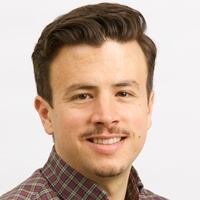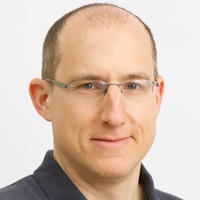The Omicron variant has, once again, postponed the resumption of travel for international meetings. When we are, eventually, free to plan travel without pandemic constraints, we will still have to consider the carbon foot-print of international travel. For example, the carbon emission associated with travel to the 2019 AGU (American Geophysical Union) Fall meeting has been estimated to exceed the annual carbon footprint of over 1400 average families in the USA. The experience we have gained with virtual conferencing in the last two years has demonstrated both the benefits and limitations of interacting remotely.
One way to get the most benefit from long-distance travel is to plan trips that bundle multiple, in-person interactions. In 2019, one climate scientist based in Texas flew to Alaska for a 6-day visit that combined 29 meetings and events in a single trip. If this sounds too exhausting, an alternative would be an extended stay in a location (like Zurich) that allows for travel by train to multiple destinations.
Conveniently located within 1000 km of Amsterdam, Berlin, London, Paris, Prague, Rome, Venice, and Vienna, Eawag hosts sabbatical visitors through its 12 research departments. Eawag has also recently launched its Socio-Environmental-Technological Systems (SETS) Synthesis Center . The goal of the SETS synthesis center is to complement Eawag’s traditionally strong focus on discovery with targeted activities in the synthesis and integration of scientific and technical knowledge, including gap analysis (e.g., through horizon scanning). Projects supported by the SETS synthesis center projects will address topics that relate to the expertise of Eawag researchers. In addition, topics that span environmental interfaces (e.g., air-water, soil-water, etc.) and/or address the water-energy-food nexus can be pursued in collaboration with Eawag researchers and colleagues from other institutions of the ETH Domain.
Eawag has hosted many sabbatical visitors over the years. Our current (and some past) visitors are listed here. If you would be interested in spending your sabbatical at Eawag, the first step would be to contact the Head of the Research Department that is closest to your expertise and interests. The Department Head will be able to provide you with further information and to guide you through our process.
Further information
Glauiusz, J. (2021) “Rethinking travel in a post-pandemic world”, Nature, 589: 155-157, https://www.nature.com/articles/d41586-020-03649-8.
Lundquist, J. and Misra, J. (2017) “How to Sabbatical”, Inside Higher Ed, https://www.insidehighered.com/advice/2017/05/11/making-most-your-sabbatical-year-essay
Seuront, L. et al. (2021) “Heads in the clouds: On the carbon footprint of conference-seeded publications in the advancement of knowledge”, Ecology and Evolution, 11: 15205-15211, https://onlinelibrary.wiley.com/doi/full/10.1002/ece3.8201.
Stark, K. (2020) “Conference Travel and Carbon Emissions: In the Midst of COVID-19, Some People Are Doing the Math”, https://www.kqed.org/science/1966164/covid-19-is-pushing-scientific-conferences-online-maybe-thats-where-they-belong.














0 Comments
No comments found!